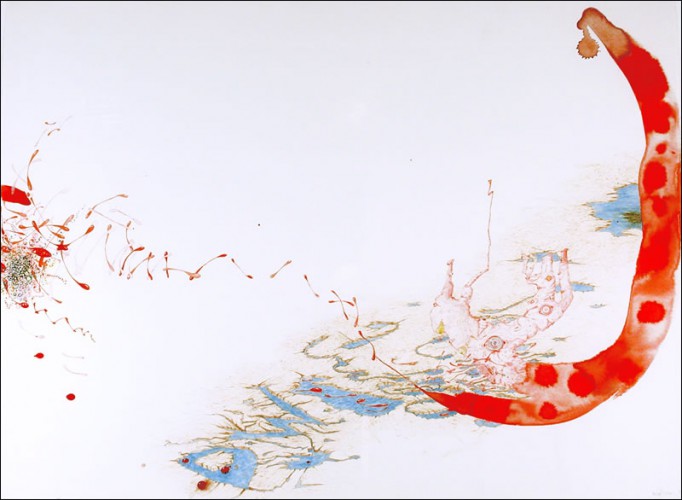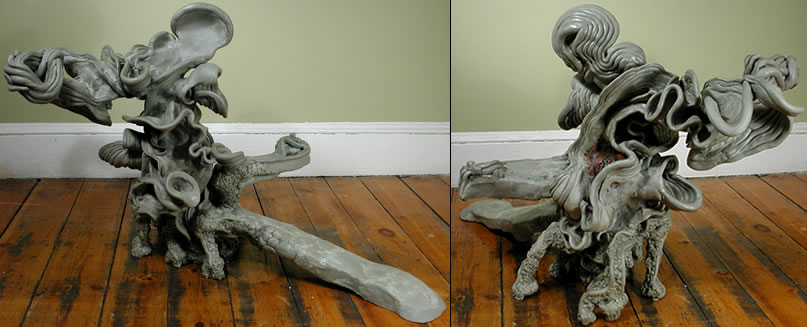Images
Press Release
Olga Adelantado, Jeff Bechtel, Michael Bilsborough, Nicole Cherubini,
Tom DeLaney, Tyler Drosdeck, Mark Golamco, Rashawn Griffin, Duron Jackson,
Dawn Kasper, Molly Larkey, Rachel Mason, Cameron Michel, Micki Pellerano,
Raúl deNieves, Sarah Oppenheimer, Christopher Miner, Todd Pavlisko,
Pepo Salazar, David Scanavino, Janice Sloane, Adam Parker Smith & Daniel Wiener
Newman Popiashvili Gallery is pleased to present a summer group exhibition of 23 artists organized by independent curator, Omar Lopez-Chahoud. The underlining concept of the show is based on the idea of personal transformation as a liberating, powerful change from one state of being to another. The Merriam-Webster Dictionary defines transformation: “to change in structure, appearance, or character; to transmute or transfigure.” Transformation is shifting of one form to another, as in one stage of life to another, or from one state of being to another. It entails hard work, inner discipline, and rigorous self-reflection, resulting in the union between life’s paradoxes, also commonly referred to as holding the tension of opposites. The process of transformation requires the death of an old way of being that gives way to the rebirth of a new liberated self. It is an archetypal, mythic journey of life, death, and rebirth. The artists in the show create a romantic notion of such processes by presenting a visual journey based on the beauty of transformation.
This exhibition is about embracing the passing of time and how it transforms into a new beautiful thing. The Picture of Dorian Gray by Oscar Wilde tells of a young man named Dorian Gray and the subject of a painting by artist Basil Hallward. Dorian is selected for his remarkable physical beauty, and Basil becomes strongly infatuated with Dorian, believing that his beauty is responsible for a new mode of art. Talking in Basil’s garden, Dorian meets Lord Henry Wotton, a friend of Basil’s, and becomes enthralled by Lord Henry’s worldview. Espousing a new kind of hedonism, Lord Henry suggests that the only thing worth pursuing in life is beauty, and the fulfillment of the senses. Realizing that one day his beauty will fade, Dorian cries out, wishing that the portrait Basil had painted of him would age rather than him. Dorian’s wish is fulfilled, subsequently plunging him into a series of debauched acts. The portrait serves as a reminder of the effect each act has upon his soul, each sin being displayed as a disfigurement of his form, or through a sign of aging.

